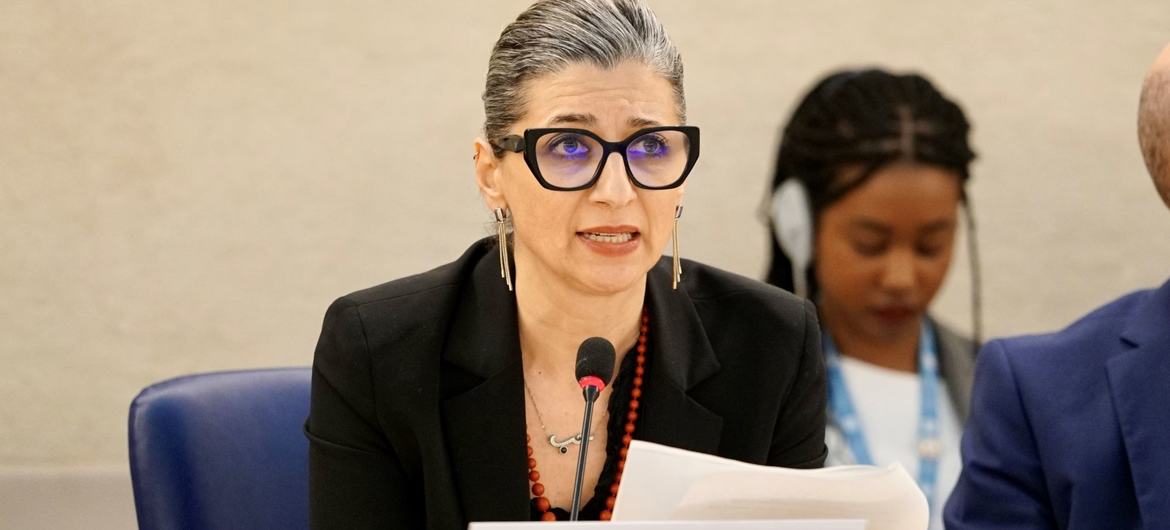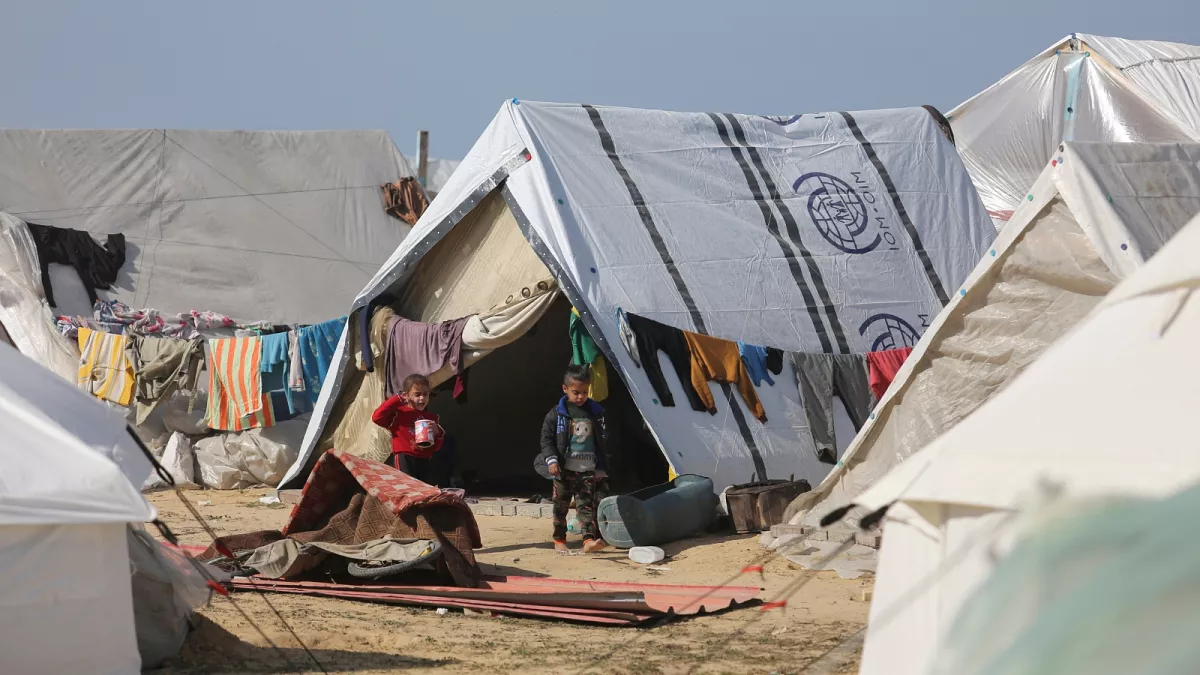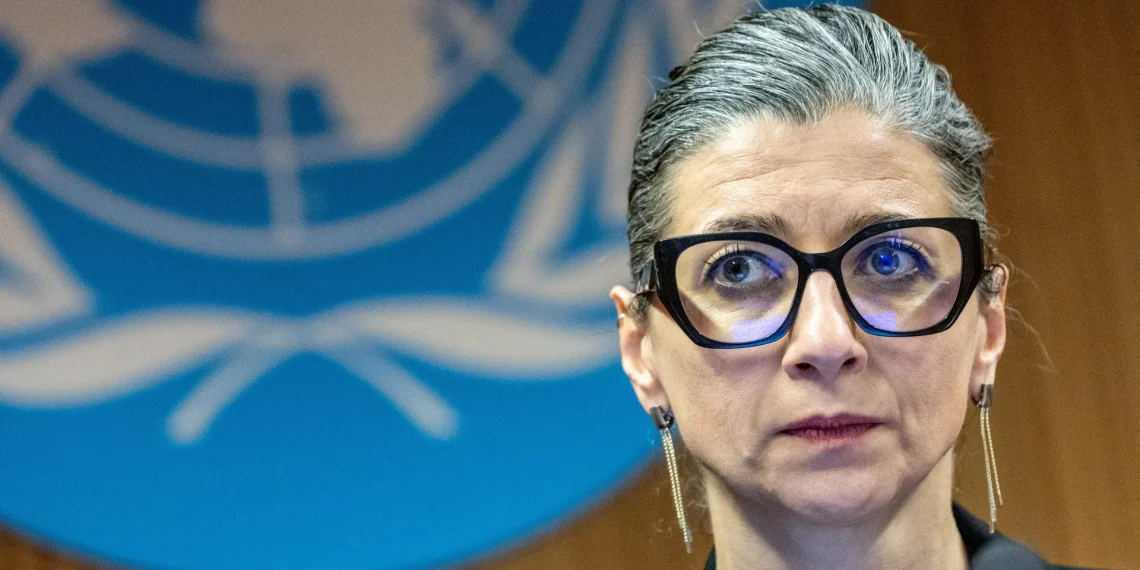Francesca Albanese, the UN Special Rapporteur on the human rights situation in the West Bank and Gaza, revealed on Wednesday that she had been subjected to threats throughout her tenure.
Her disclosure follows the presentation of a contentious report titled “Anatomy of a Genocide” to the UN Human Rights Council, where she asserted that Israel may have committed genocide in Gaza during its military operations against Hamas.
Despite facing pressure and threats, Albanese remained resolute in her commitment to her work. She clarified that while she has received threats, she hasn’t deemed them severe enough to warrant extra precautions.

The report’s findings, however, have stirred controversy, with Israel vehemently rejecting it, labeling it as an attempt to delegitimize the state’s existence.
Albanese’s report implicated Israel’s executive and military leadership, alleging intentional subversion of protection functions to legitimize genocidal violence against Palestinians.
She contended that such actions revealed a policy of genocidal violence towards the Palestinian populace in Gaza.
Israel’s response was swift and categorical, denouncing the use of the term genocide as “outrageous” and maintaining that its military operations targeted Hamas rather than Palestinian civilians.
The Israeli government has consistently opposed Albanese’s assertions, accusing her of undermining Israel’s sovereignty and existence.

Despite the backlash, Albanese stands by her findings, asserting that the pressure and criticism have not swayed her dedication to uncovering human rights violations.
Her unwavering commitment underscores the importance of impartial investigations and advocacy in conflict zones like Gaza, where allegations of human rights abuses are commonplace.
Albanese’s experience highlights the challenges faced by UN experts tasked with reporting on sensitive global issues. The controversy surrounding her report underscores the complexities of the Israeli-Palestinian conflict and the divergent narratives surrounding it.





